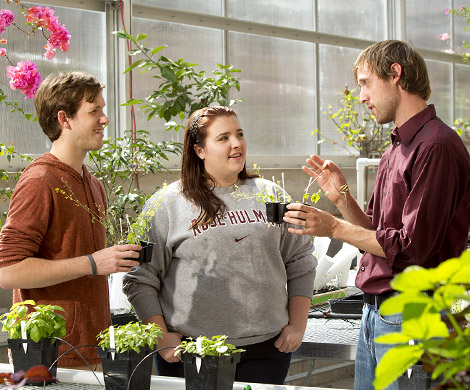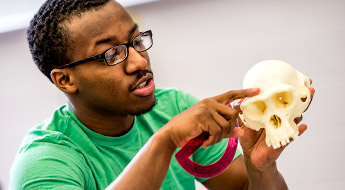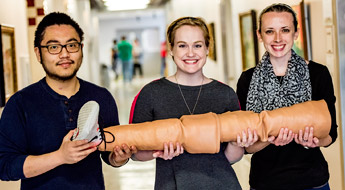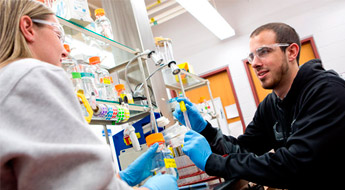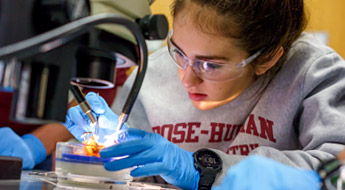Facilities & Resources
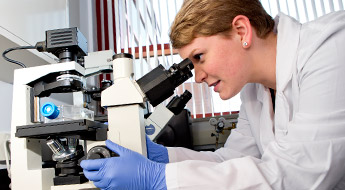
Biology Laboratories
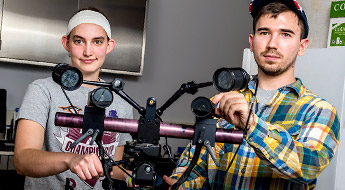
Biomedical Engineering Laboratories
As a student of Biomedical Engineering, you’ll have many opportunities to improve your understanding of your field through hands-on research in one of our state-of-the-art laboratories. You’ll have access to our teaching and research labs, instrumentation lab, and our tissue culture lab. You will also have the opportunity to make use of our Orthopaedic Biomedical Engineering Lab, which we operate in cooperation with the Joint Replacement Surgeons of Indiana Research Foundation.
Access to our labs has enabled our undergraduate and graduate students to do the work necessary to publish research papers and journal articles, advancing orthopedic medicine and health care in general. We know you’ll find the right lab for the work you chose to pursue.
Student Opportunities
Majors, Minors, and Master’s
Bachelor of Science in Biology
Bachelor of Science in Biomedical Engineering
 If you love engineering, the life sciences, and helping others, biomedical engineering is a wonderful career option. Many of our graduates find careers designing medical devices, conducting research, or even working as accident reconstruction engineers. It’s an exciting field combining the principles of engineering with the biological life sciences.
If you love engineering, the life sciences, and helping others, biomedical engineering is a wonderful career option. Many of our graduates find careers designing medical devices, conducting research, or even working as accident reconstruction engineers. It’s an exciting field combining the principles of engineering with the biological life sciences.
Master’s Degree in Biomedical Engineering
For graduates with an engineering degree who wish to pursue a career in health care, a Master’s Degree in Biomedical Engineering is an exciting choice. This program draws heavily on your engineering knowledge while applying that knowledge to the biological life sciences.
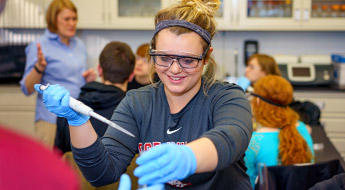
Minor in Biology, Biochemistry & Microbiology
We encourage students from any major to consider expanding their knowledge of the life sciences by completing a minor in biology or biochemistry & microbiology. The minor will expose you to entirely new career and research possibilities in an exciting and growing field.
Learn More:
Biology is a software process. Our bodies are made up of trillions of cells, each governed by this process. You and I are walking around with outdated software running in our bodies, which evolved in a very different era.
Career Possibilities
Our labs, classes, and research opportunities will not only prepare you for a rewarding and exciting career, but also for graduate study. Our programs include hands-on experience far beyond what is often available to undergraduates.
Check out some careers you could pursue with a Biology or Biomedical Engineering degree.
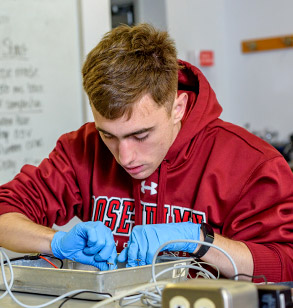
Research Scientist
With a Ph.D., a research scientist can work in a variety of fields, from a commercial setting working with and testing products, to an academic environment conducting experiments and reporting the findings of research. Research scientists can improve products and processes, expand scientific understanding and impact real-world applications through their findings. The median annual salary for a research scientist is $77,028, according to PayScale.
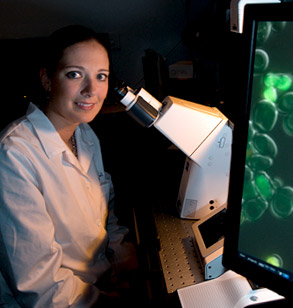
Biomedical Engineer
Biomedical engineers combine engineering principles with medical and biological sciences to design and create equipment, devices, computer systems, and software used in healthcare. Demand for biomedical engineers is projected to be far above the average profession for at least the next decade. Biomedical engineers typically need a bachelor’s degree in biomedical engineering or bioengineering from an accredited program in order to enter the occupation. Alternatively, they can get a bachelor’s degree in a different field of engineering and then either choose biological science electives or get a graduate degree in biomedical engineering. The median annual wage for biomedical engineers was $86,220 in 2015, according to the U.S. Bureau of Labor Statistics.
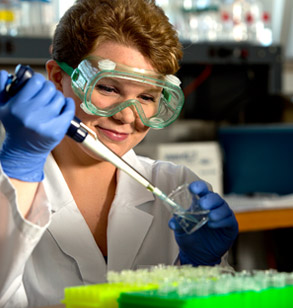
Medical Scientists
Medical scientists conduct research aimed at improving overall human health. They often use clinical trials and other investigative methods to reach their findings. Medical scientists typically have a Ph.D., usually in biology or a related life science. Some medical scientists get a medical degree instead of a Ph.D., but prefer doing research to practicing as a physician. The median annual wage for medical scientists was $82,240 in 2015, accoding to the U.S. Bureau of Labor Statistics.
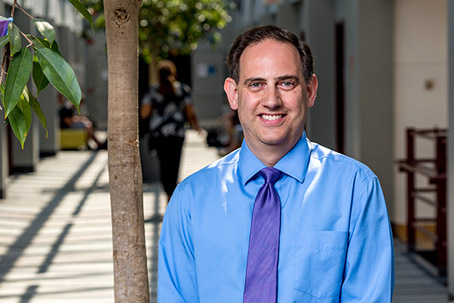
Bill Weiner
Dr. Bill Weiner is an expert in circadian rhythms, the sensory processing of neural systems and invertebrate vision. He enjoys teaching and trying to maximize each student’s potential. His efforts were recognized by the Princeton Review, being listed among the Best 300 Professors in America book. He also has been recognized among the outstanding professors on campus and spent a year helping examine how to incorporate engineering design concepts into the institute’s curriculum.
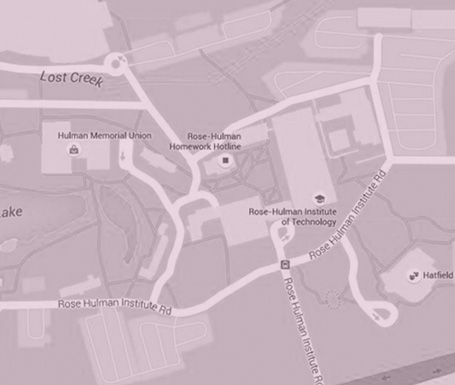
Contact Us
Department of Biology and Biomedical Engineering
Rose-Hulman Institute of Technology
5500 Wabash Avenue
Terre Haute, IN 47803
812-877-8441

